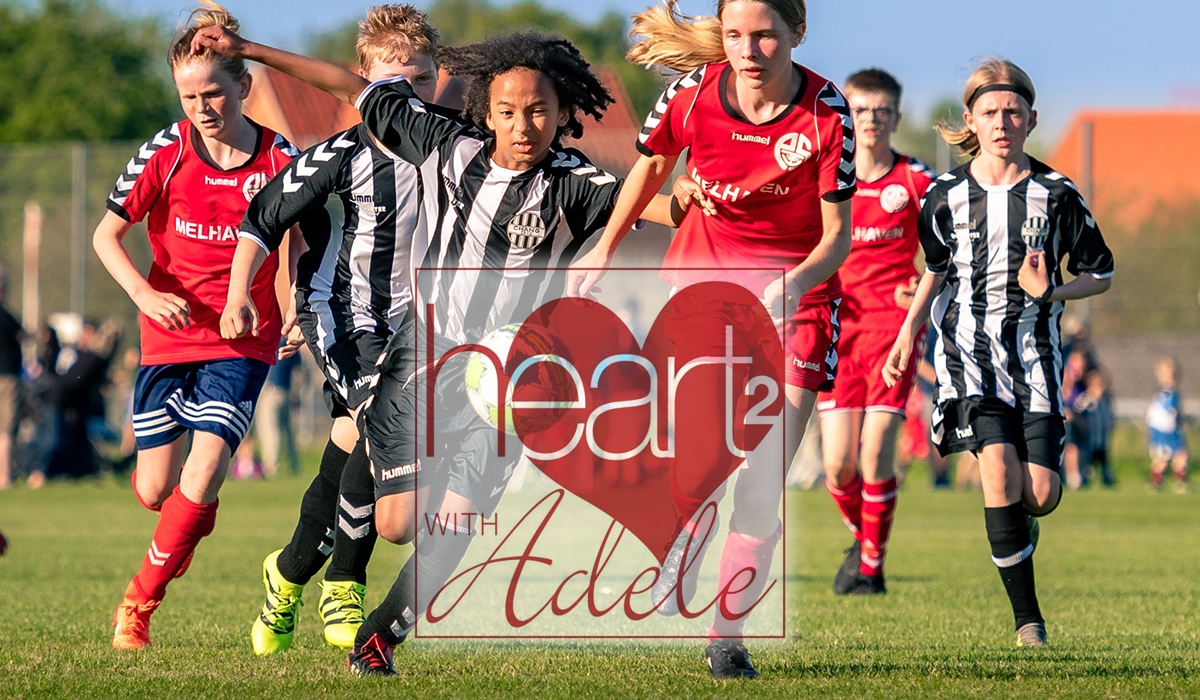
The Yin and the Yang of children and competitive sport
Question:
Dear Adele,
Our primary school aged son is displaying exceptional athletic abilities. We have had him in numerous house league sporting activities such as T-ball, soccer, hockey and swimming. We have heard mixed reviews about competitive sport, in which we feel he may best reach his potential. What say you, Adele?
Unsure
Answer:
Dear Unsure,
My three adopted children had exceptional abilities in a range of sports. My husband and I opted to put them all in competitive sports. Countless friends did the same thing with their children with both good and bad results from those decisions. I will discuss the Yin and the Yang of competitive sport for children and youth. Hopefully the information will be valuable to you.
The benefits of competitive sport are fairly obvious and well-known.
Skill development is the first. With better trained coaches and numerous regular practices each week, your child’s skill level in his chosen sport should improve. Most sports have different levels of achievement which, once passed, allow the child to move on to progressively higher levels. It is unlikely that a child’s skill level will increase at the same rate if he or she is not involved in competitive programs, because they will not have the coaching, the lengthy practices, or the role models and impact of the competition.
Discipline is the second. Most people acknowledge that discipline is required to be in a competitive sport. A child will have to be available for practices held, whether he wants to go or not. He will have to attend the games when they are scheduled no matter whether he likes the date and time, or not. He will have to accept the direction and supervision of his coaches whether he wants to or not. This kind of discipline is helpful in molding the character of a child and assists him in becoming a well-organized and well-ordered person in adulthood going to college, University or into the workforce.
Interpersonal benefits are many as well. Children involved in team sports learn the value of team play and the give-and-take of the team. They will also be exposed to other boys and girls enjoying the same sports and will expand friendships. Many parents like the idea of their children making friends with other youngsters who are busy and involved in productive kinds of activities. Sportsmanship is inherent to most competitive sport and supports children in their growth in positivity, respect for others, and understanding of rules and their function.
Good health is another benefit of competitive sport. Sports conducted outdoors provide an opportunity for inhaling fresh air and enjoying sunshine which may result in a positive influence on eyesight. Children involved in competitive sport are likelier to be of a healthy weight. Psychologically children who are active and getting exercise are likelier to be healthier emotionally and may experience growth in self-confidence and self- esteem in the activity. Children are supervised and positively engaged in competitive sport so their safety needs are usually met, too.
Finally, involvement in extracurricular activities such as competitive sport may offer most children or adolescents fun and enjoyment, as well as a future on a university sport’s team, a career in sport or recreation, teaching opportunities in a part-time job coaching and the resulting income, and long-term recreational activities for themselves as adults.
There are some negative features to competitive sport that you should be aware of before you choose this for your son, however, Unsure.
The first is the amount of time competitive sport takes. It doesn’t take very long before the one or two practices a week becomes three or four, or five of six, or even more, and the one game a week to stretch into several games or tournaments/meets/competitions on weekends, some of them out town. The time commitments that the sport demands must be weighed up against the diminished time that will be available to the child with the family for other things, including free play.
The time issue becomes compounded when there are two or three children in the family. They may be in different places for practices and be involved in different games/ tournaments/competitions or meets. The family free time together can become almost nonexistent when you factor in work, school, religious commitment, extended family commitments, practices, competitions, volunteer responsibilities and the desire for free time and vacation. It should be remembered that it is very difficult to pull back on your child’s involvement in competitive activities so that you can have additional time, or that other members of the family can have additional time, once your child is into the sport for a while.
Besides time, money is a consideration for most families. Competitive sport is not cheap. There are fees for equipment, uniforms or costumes and there are costs involved in travel and meals. Competitive skaters for example need to pay a coach and rent ice time. Competitive swimmers pay a fee for coaching and pool time as well as meet fees. Parents are often expected to help raise money with several fundraising activities, in addition to assisting in running the clubs in diverse capacities.
The negative psychological impacts of competitive sport should be considered. You must realize that less talented athletes are likely to get less playing or performing time. If your child does not continue to improve, his self-esteem may deteriorate. While most parents envisage their five-year-old dressed up in hockey gear to be the next Wayne Gretzsky and their sweet 7-year-old daughter figure skating to be the next Karen Magnuson, the truth of it is that the vast majority of us will leave competitive sport as teenagers, get on with life and become teachers, doctors, bus drivers, secretaries, and nurses, not professional career athletes. If a child has exceptional talents one has to be careful negative coaches do not put too much pressure on the child to excel beyond his years, leading to disappointment for the child. Another factor in the same ballpark is jealousy, which sometimes occurs between the kids or between the parents who think one child may be favoured by a coach, other parents or other children.
An interesting article entitled ‘When should kids start playing competitive sports?’ states that “experts in the youth, sports and child development agree: kids are not ready for competition until they are at least eight years old”. The under eight crowd cannot handle the stresses of winning and losing being measured and scored in performance. They may fail to comprehend that a ‘best effort’ does not necessarily guarantee a ‘win’. Children under eight should engage in sports for the physical activity, for the learning of new skills, for good sportsmanship and for the opportunity to make new friends. Verywellfamily.com believes that competitive sport is for children over 10 years of age.
Should you choose a competitive sport for your child verywellfamily suggests you choose a sport the child really likes and one which focuses on the mastery of the skill, rather than winning. Be sure the coach uses a lot of praise for attaining personal bests, attending practice, remaining persistent, and displaying effort. The parents should make an assessment as to whether the child really wants to play and whether a team sport or an individual sport is best for the particular child. Your family needs to assess its own readiness for the time and financial commitments and be sure to safeguard the child’s free time and free play opportunities.
You might be wondering Unsure which sport to choose if your child has ability and interest in many? If so, you might want to consider how the group is organized, how your values match those of the sport, the amount of parental involvement required, the practice and game schedule, the coaching philosophy, the safety, the ratio of adults to children, the equipment required, the insurance or injury, the match of the sport to your child’s ability, and the match of your ability to support it, in time, cost, involvement, transportation and insurance.
May I suggest you not undervalue the import of free play for children, Unsure. The book entitled “The Coddling of the American Mind” by Lukianoff and Haidt, has a first-rate chapter (9) on the value of free play in the development of human young. It is worth a read.
I will conclude with a few inspirational quotations on this subject which might be constructive:
‘A trophy carries dust. Memories last forever.’ — Mary Lou Retton
‘One man practicing sportsmanship is far better than 50 preaching it.’ — Knute Rockne
‘Victory is in having done your best. If you’ve done your best, you’ve won.’ — Billy Bowerman
Sincerely, Adele
Photo: Lars Bo Nielson, Unsplash








